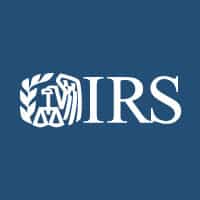 Like many federal government organizations, the IRS has many different regulations. One of the most important regulations is known as Circular 230. This set of regulations deals with the practice of representation before the IRS. Representation before the IRS involves the ability of those who are engaged in certain tax-related professions to represent others to the IRS. It also describes several different levels of representation that these same professionals may have, the duties they have, and the penalties they may face for violation of these same guidelines and regulations.
Like many federal government organizations, the IRS has many different regulations. One of the most important regulations is known as Circular 230. This set of regulations deals with the practice of representation before the IRS. Representation before the IRS involves the ability of those who are engaged in certain tax-related professions to represent others to the IRS. It also describes several different levels of representation that these same professionals may have, the duties they have, and the penalties they may face for violation of these same guidelines and regulations.
There are three professions that have full representation capability. Attorneys, certified public accountants (CPAs), and enrolled agents (EAs). An enrolled agent is someone who has been granted permission to represent others based on at least 5 years of experience working for the IRS in a similar capability, or by passing a series of comprehensive tests based on U.S. Federal Tax law. All three professions have the ability to fully represent a taxpayer in any matter to the IRS.
Members of several other professions also are granted limited representation rights via Circular 230. Enrolled actuaries, enrolled retirement plan agents, and registered tax return attorneys (RTRPS) all have the ability to provide limited representation within certain parameters based on their individual occupations. For example, RTRPs have the ability to discuss tax returns they have done for their clients, but only during an examination, and they cannot provide advice outside of the tax process. Someone who is an employee of a business, or members of an immediate family may also be granted limited practice rights to represent their business or family member.
Circular 230 also discuss the responsibilities of those who have been granted representation capabilities. This includes everything from record retention to how to solicit for business. It also lists all the requirements for those who fall under Circular 230 to maintain their representation status, including the requirement of continuing education, and annual ethics training. It also determines what is considered violations of Circular 230 provisions.
Recently, several Circular 230 regulations have been overturned by US Federal Court. Regulations pertaining to registered tax attorneys have been suspended as the courts have determined that the IRS was not granted this authority by Congress. Because non-Circular 230 tax attorneys are currently not regulated, it is important that you question your tax attorney about their experience and their continuing education background to make sure they are up to date with the latest tax changes.
______________________________________________________________________
Please keep in mind the information and advice presented in this blog is not intended to be used as formal legal advice. Contact a tax professional for personalized tax advice pertaining to your specific situation. While we try and answer all parts of the question when we write our blogs, sometimes there may be some left unanswered. If you have any questions about your problems with the IRS, SBOE, FTB, or BOE, or tax law in general, call RJS Law at (619) 595-1655.

Leave a Reply